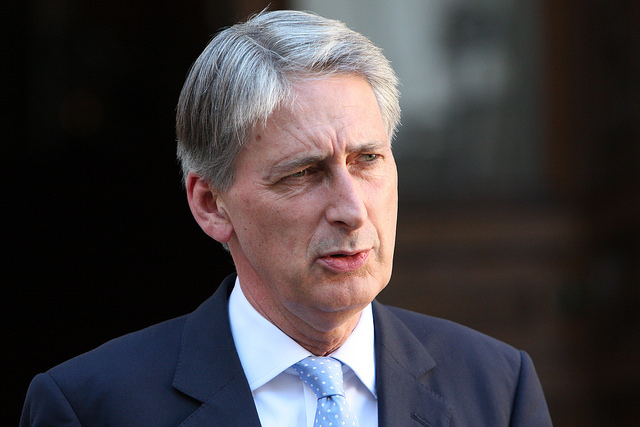
Focusing on closing the UK’s productivity gap, Chancellor of the Exchequer Philip Hammond today delivered his first – and last – Autumn Statement
The focus of Chancellor Philip Hammond’s first Autumn Statement, which he delivered to Parliament at lunch time today, was to close the “unacceptable” productivity gap. Through it he said the government has chosen “to prioritise additional high-value investment, specifically in infrastructure and innovation, that will directly contribute to raising Britain’s productivity”.
According to the supporting policy paper, the measures announced today as well as those in the government’s new industrial strategy “will focus on raising productivity to raise living standards for people across the UK”.
“We are investing in local infrastructure in every region of England,” Hammond said, unveiling funds for local enterprise partnerships (LEPs). “I can announce the allocation of £1.8bn from the Local Growth Fund to the English regions: £556m to Local Enterprise Partnerships in the North of England, £542m to the Midlands and East of England, and £683m to LEPs in the South West, South East and London.”
Housing crisis part of productivity problem
As expected, Hammond confirmed plans to ban letting fees, which triggered a crash in the share price of Foxtons and other estate agents this morning. Kate Andrews, news editor at the Institute of Economic Affairs told BBC News the Chancellor’s plan to ban the fees “is him basically skirting round the issue of the housing crisis altogether”.
The Chancellor addressed the housing crisis in his statement under the wider concern of the productivity gap, saying that infrastructure investment for the regions would be focussed on unlocking land for building and announcing £1.4bn towards the building of 40,000 affordable houses.
The National Living Wage, which applies to workers over the age of 25, will rise to £7.50 an hour. The Living Wage Foundation welcomed the announcement, but said that it did not go far enough.
“A raise to the national minimum wage for over-25s will help some low-paid workers,” said TUC general secretary Frances O’Grady before the speech. “But the government must also take the opportunity to boost the pay of hard-pressed nurses, teachers, firefighters and home helps, who face ten years of flatlining pay.”
Hammond confirmed the government’s commitment to raise the personal allowance to £12,500, and the threshold for the higher tax rate to £50,000, by 2020, and declared that tax-free salary sacrifice schemes – aside from those for ultra-low emission cars, pensions saving, childcare and the cycle to work scheme – would no longer be tolerated.
‘A period of uncertainty, followed by adjustment’
On the Office for Budget Responsibility’s rather bleak outlook for the economy overall, the Autumn Statement simply says that, “The UK is likely to face a period of uncertainty, followed by adjustment (…) The OBR expects lower business investment and household spending to weigh on GDP in the near term.”
On the topic of the referendum, on which Theresa May had earlier refused to be drawn during Prime Minister’s questions, he said:
“While the OBR is clear that it cannot predict the deal the UK will strike with the EU, its current view is that the referendum decision means that potential growth over the forecast period is 2.4 percentage points lower than would otherwise have been the case.”
The biggest surprise to the House seemed to be the final point in the Chancellor’s speech – that his first Autumn Statement would also be his last. Starting in Autumn 2017, Britain will have an Autumn Budget and a Spring Statement, rather than the other way around. Calling the reform “long overdue”, he said he would not make significant changes twice a year “just for the sake of it”.
To the anger and disappointment of many individuals and organisations, loud and urgent calls for additional funding to tackle the crises in social care and the NHS were met with silence.




![Europe’s housing crisis: A fundamental social right under pressure Run-down appartment building in southeast Europe set before a moody evening sky. High dynamic range photo. Please see my related collections... [url=search/lightbox/7431206][img]http://i161.photobucket.com/albums/t218/dave9296/Lightbox_Vetta.jpg[/img][/url]](https://www.openaccessgovernment.org/wp-content/uploads/2025/04/iStock-108309610-218x150.jpg)





